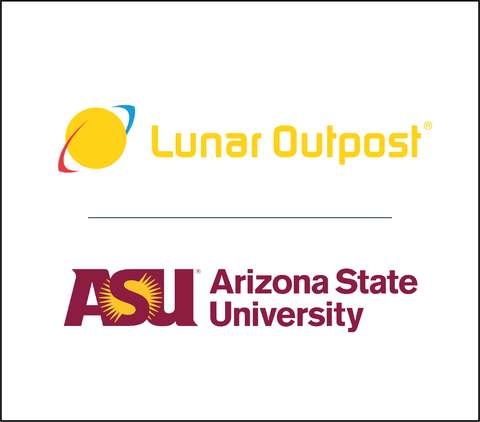The group will serve as industry experts advising the team’s efforts for the NASA-awarded Lunar Terrain Vehicle Services contract
Today, Lunar Outpost announced it has established the Lunar Dawn Science Council, naming Arizona State University (ASU) School of Earth and Space Exploration as the lead research organization. The Lunar Dawn team, led by Lunar Outpost, was awarded a Lunar Terrain Vehicle Services (LTVS) contract by NASA in April 2024 and is leading the way by implementing an experienced Science Council to maximize the scientific return of the Lunar Terrain Vehicle (LTV). This group of vetted, academic and industry professionals will provide input and guidance from the lunar science community to enhance the quality of science generated from the LTV through the 10+ years of operational life on the lunar surface.
This press release features multimedia. View the full release here: https://www.businesswire.com/news/home/20240827657060/en/

With Lunar Outpost as the prime contractor, the Lunar Dawn team is currently designing an LTV that will enable Artemis Astronauts to expand exploration of the lunar surface, conduct extensive scientific research during NASA’s Artemis campaign at the Moon, and prepare for human missions to Mars. When the LTV is not being utilized by NASA, the Lunar Dawn team will pursue a variety of commercial missions with support from the Science Council. During these missions, the Science Council will establish key science objectives, provide feedback to enhance vehicle science capabilities, recommend investigation targets, and interpret terrain and instrument data for the LTV throughout the LTV missions. The Science Council includes a global coalition of distinguished partners from the United States and other Artemis Accords signatory nations with ASU playing an important role in the organization and operation of the Council.
“It will take the best and brightest minds to create not only the first, but most scientifically viable off-road vehicle for living and working on the Moon's surface. ASU’s dedication to unlocking new scientific frontiers and extensive global reach make them a natural leader of the Science Council,” said AJ Gemer, CTO and co-founder of Lunar Outpost. “Drawing on the expertise of these individuals will ensure the greatest scientific and exploration potential as we develop our LTV with unparalleled technical capabilities.”
ASU’s leadership of the Science Council is supported by the university’s Space Technology and Science Initiative (ASU/NewSpace), Milo Space Science Institute (MILO) and Digital Discovery Initiative (DDI). MILO makes space exploration accessible to countries around the world to transform the way we think about engaging in space exploration and innovative business models that reduce the cost of entry. DDI is a strategic initiative focused on utilizing advanced digital technologies and data analytics to support and enhance lunar research. ASU/NewSpace continues to expand ASU’s mutually beneficial engineering, business, and scientific relationships with the commercial space industry. The Science Council will aim to improve the quality and accessibility of lunar mission data to foster international collaboration, STEM education engagement, and innovation in lunar science and exploration.
“The integration of academic and commercial space enterprises is critical to making space exploration accessible to all. We believe our core strengths in space science, engineering, education, and outreach compliment the exceptional work from the Lunar Dawn team,” said Jim Bell, professor and director of ASU’s NewSpace and chair of the Lunar Dawn Science Council. “We are thrilled to lead this Science Council and work with the team as they create this innovative and industry leading Lunar Terrain Vehicle.”
About Lunar Outpost
Lunar Outpost is the industry leader in lunar surface mobility, commercial space robotics, and space resources. From our terrestrial product lines revolutionizing the air quality sector on Earth to the creation of oxygen on Mars, our impact spans the solar system. Lunar Outpost’s exploration class rover, the Mobile Autonomous Prospecting Platform (MAPP), will be the first commercial rover on the Moon and the first rover in history to explore the lunar South Pole.
Since our founding in 2017, Lunar Outpost has raised Venture Capital from top-tier investors and continues to attract strong investment partners as we continue to prove the opportunity that advanced mobility, robotics and autonomy provide to the new space economy and here on Earth. In 2021, Lunar Outpost announced that our commercially funded MAPP rover was scheduled for delivery by an Intuitive Machines lander to the lunar South Pole. Lunar Outpost has since secured three additional contracted lunar surface missions; in addition to leading the Lunar Dawn team, the leading consortium to create a true off-road vehicle for Artemis Astronauts living and working on the Moon’s surface. In addition to the missions above, Lunar Outpost has also won a contract with the Australian Space Agency to design and develop a lunar rover for Australia’s first mission to the Moon as part of the Trailblazer program.
With over a dozen active contracts across commercial, defense and civil space, Lunar Outpost is The Next Leap that will enable humanity to become interplanetary.
Find out more at lunaroutpost.com. Follow us on X, LinkedIn, Instagram.
About Arizona State University
Arizona State University has developed a new model for the American Research University, creating an institution that is committed to access, excellence and impact. ASU measures itself by those it includes, not by those it excludes. As the prototype for a New American University, ASU pursues research that contributes to the public good, and ASU assumes major responsibility for the economic, social and cultural vitality of the communities that surround it.
View source version on businesswire.com: https://www.businesswire.com/news/home/20240827657060/en/
Contacts
Jennifer Larson, Lunar Outpost
Sr. Director Marketing + Communications
jennifer.larson@lunaroutpost.com
Kim Baptista, ASU School of Earth and Space Exploration
Media Relations and Marketing Manager
kim.baptista@asu.edu
